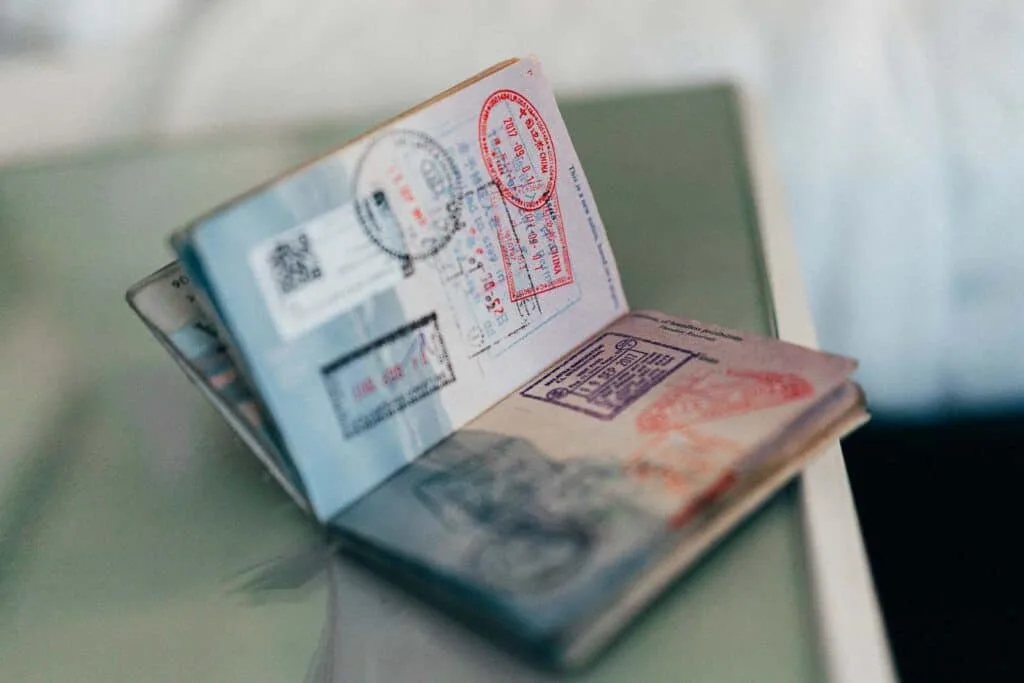Googling “I want to leave the USA?” I don’t blame you. Here’s how to leave the USA (like me and thousands of other Americans have) and how to make a new life outside of the States.
Honestly, in the last few years, I’ve had so many messages from Americans who want to move out of the US but don’t know how. Whether it was over the US elections, Roe vs Wade, or any number of things that you now realize to be the last straw, I understand completely.
Since leaving the US and moving abroad, I’ve had the space and time to realize what I was missing and appreciate the opportunities that living in Germany has given me. So, if you want to know how to move out of the US, I’ve got you. Here’s my guide on how to make your expat dream a reality.
1. Think About What You Want and Need
Okay, so you’ve made your decision to leave the US. Good! So, where are you going to go? This is a big decision and one you don’t want to make on a whim.
Think about why you’re leaving the US, what don’t you like about it? Do you want universal healthcare? Do you want better gun laws? Do you want a more liberal government?
Do you want more bang for your buck? Think about why you’re leaving and use this as a framework for choosing your new home.
Once you’ve done that, think about what you really like about your life and what you want to keep. Maybe you like having a social, small-town feel.
Maybe you need somewhere that’s walkable because you don’t drive. Maybe you need to have really good flight links to other countries.
Make a must-have and nice-to-have list of what you want and need for your new life. Just because it looks like a nice place on Instagram is not really a good enough reason to move there on its own.
2. Think About Your Finances
Once you have your list of priorities, it’s time to think about your money. What are you going to do when you move abroad? Does your company have international offices? Do you work for yourself?

Can you work remotely? Do you have skills that other countries want? These are all super important and viable questions that you need to be asking yourself.
You also need to know how much you’re likely to be earning each month, as many countries have income requirements as part of their visa approval process. This is to ensure that you can support yourself while you’re living in that country.
The trend tends to be that the higher the cost of living, the higher the income requirement, but each country’s government website will make it pretty clear what their requirement is.
When you know for sure that you’re leaving the US, you’re going to want to start moving your money into an international offshore account.
This means you’ll be able to access it from wherever, and as long as there isn’t a branch in the US, the IRS won’t be able to seize it for whatever reason. Places like Belize and Panama have great systems in place, or if you have a higher bank balance, Swiss banks might be open to you.
Similarly, you’re going to want to check on your pension as well. You’ve worked hard for that money, so take steps to make sure you’ll be able to access it and use it even if you’re outside the US.
Just like with your bank account, there are international offshore IRAs that you can use. Shop around and find which one best suits your needs.
3. Check Out Residency Permits
Next up, you need to have a look at residency permits and visas. You should have a good idea of your financial situation from the last step, so this will have narrowed down where you can move to.

Having a residency permit doesn’t necessarily mean giving up your US citizenship, but it does give you a lot more perks in your new home country. Think of it as a stepping stone between a tourist visa and full citizenship.
Different countries have different regulations surrounding residency permits. It might be that you need one in order to buy a house, or for some countries, you can only buy liquor if you have a residency permit, so it’s definitely worth checking out.
You’ll need to do this with plenty of time to spare, as with any visa-style paperwork, it can take a while to complete and be processed.
Here are a few great places to consider and how to move there as an American:
I‘ve lived abroad for many years and love helping others find work abroad and figure out their “Move Abroad Plan.” Check out my class below to get you started ASAP!
4. Plan a Visit to Your New Home
Living in a place is very different from visiting somewhere as a tourist, or even if you visit family or friends living overseas. If you’ve landed on a place to move to, you need to have another visit with your residential hat on.

Go and stay in an Airbnb in the area or suburb you’d likely be living in. Spend some time doing mundane things like going to the grocery store, or driving to your future office or school in rush hour to see how bad the traffic is.
Essentially, act as if you’ve already moved there.
If you have your visa or residency permits already approved, while you’re there, you can also set up some meetings with local realtors, job interviews, or school tours, so you can have everything set up and ready when you return.
5. Sell or Rent Your Property
Depending on your situation back in the US, you might have to sell or rent your property. If you’re renting anyway, you just need to hand in your notice, but if you own your place, it’s slightly more complicated.
If you can afford to, renting out your property in the US is a great way to have some solid and reliable income while you’re settling into your new home.
Of course, if this is the case, you might want to hire a local property manager to keep an eye on things and you’ll want to check out the tax implications of being a landlord in the US with an offshore bank account.
If you need the capital or just have no interest in being a landlord in the States, then you need to get your property on the market and sold as soon as possible.
House sales can take forever to go through and can even fall through multiple times. You don’t want to have organized everything in your new home just to have it delayed by selling your old place.
6. Paperwork, Paperwork, Paperwork
It’s not fun and it’s not sexy, but if you’re moving to a new country, you’re going to need all your paperwork and documentation in order before you leave.
I’m not just talking about the papers you need to become a resident or get your visa, you need everything.
If you think getting your records is hard when you’re living in the US and the council buildings are only down the road, think about how difficult it’s going to be with the time difference and borders in between.
In addition to all your standard birth and marriage certificates, passports, and proof of income records, you’re going to want to bring school records, tax returns, business accounts, driving licenses, and immunization records – and that’s just a few.
Especially in countries across Europe, vaccination records are huge, especially for children. There are several countries that require children to have certain immunizations before being allowed into schools, so you’ll need to bring proof.
It’s best to bring everything with you, and try to bring the originals, not copied versions.
By all means, make extra copies in case you lose them or an office accepts copied versions, but most of the time, official government bodies will only accept original copies of your paperwork.
7. Brush Up on Your Language Skills
Moving to a country where English is not the primary language? You’d better get started!
I highly recommend Pimsleur for this. I have loved using it to learn useful phrases quickly (instead of “The duck is yellow” like Duolingo). The phrases I have learned on Pimsleur have stuck with me for years, so I can’t recommend it enough for language learning.
Although you’ll learn a lot quicker when you’re out there in your new country and using your target language every day, you have to go out with the basics at least.
Think about what you’re going to need to be able to deal with in your target language in the first couple of weeks of moving there.
Things like being able to order in a coffee shop, setting up medical appointments, organizing interviews, or getting directions, and talking to local council officials.
Rather than learning about colors and animals – though they can come in useful – focus on language phrases and situations that you’re going to actually need and use.
Initially, learning the phrases and words that you’re going to use at the bank is going to be more worth your time than learning the names of the entire extended family tree. Especially if you’re short on time, you’re going to have to prioritize.
8. Take the Leap
At some point, you’re just going to have to accept that you’re as ready as you’re going to be and just take the leap. It’s going to be scary regardless of the amount of prep and planning you’ve done.

There’s no sugarcoating it, it’s a huge life decision.
Leaving what you know behind can be daunting, but if there’s a chance for a better life for you or your family, and you have the means and opportunity to grab it, it’s a no-brainer.
And yes, there will be times when you miss the US, like when no food store nearby sells peanut butter or on the fourth of July when there are no fireworks, but these little things are tiny compared to all the new and exciting experiences you’re going to have in this new chapter of your life.
Take the leap and throw yourself in wholeheartedly. Find expat groups nearby. Go to community events and classes. Join a club or gym where you can meet like-minded people.
Soon you’ll find yourself with a new routine, new friends, and a new way of looking at the world. It’s pretty great. And if you miss the US, it’s just a flight away.
Vanessa Wachtmeister is a travel tech professional and the creator of the wealth & wanderlust platform, Wander Onwards. Vanessa is originally from Los Angeles, California, she is a proud Chicana, and she has been living abroad for the last 9 years. Today, she helps people pursue financial and location independence through her ‘Move Abroad’ Master Class, financial literacy digital products, and career workshops.




Jessica Smith
Saturday 19th of July 2025
Great list. I'm finally going to get my passport in 2025 before the year is over. I've put it off for practically three to five years because of poor planning on my part. I was supposed to have gotten my passport in 2020 but then COVID hit and many people weren't allowed to travel abroad in order to slow the spread until 2021/2022. I then said I'd get my passport in 2022 after I received my birth certificate with my current name but never did. I realized life is too short and I can't let things hold me back. Leaving the US, which I plan to eventually do, is a big step and you have to get things in order first. I know for a fact that I won't really miss this country, but will probably miss certain things about it such as family or friends or different places.
John Farrar
Thursday 25th of May 2023
Thank you for you excellent insights and information. Very helpful.